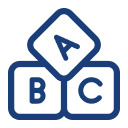Online Classroom Batches Preferred
Weekdays Regular
(Class 1Hr - 1:30Hrs) / Per Session
Weekdays Regular
(Class 1Hr - 1:30Hrs) / Per Session
Weekend Regular
(Class 3hr - 3:30Hrs) / Per Session
Weekend Fasttrack
(Class 4:30Hr - 5:00Hrs) / Per Session
No Interest Financing start at ₹ 5000 / month
Top Skills You Will Gain
- Manual Test
- Automated Tools Selenium
- QTP UFT Loadrunner, Maven
- Quality Center
- Appium ETL, Jmeter
- Agile Performance, Test Complete
- Proctactor, TestNG Big Data
- SoapUI SQL Testing, API Testing
Software Testing Online Course Key Features 100% Money Back Guarantee
-

5 Weeks Training
For Become a Expert -

Certificate of Training
From Industry Software Testing Experts -

Beginner Friendly
No Prior Knowledge Required -

Build 3+ Projects
For Hands-on Practices -

Lifetime Access
To Self-placed Learning -

Placement Assistance
To Build Your Career
Top Companies Placement
- Designation
-
Annual SalaryHiring Companies
Software Testing Course Curriculum
Trainers Profile
Our trainers are highly knowledgeable and skilled in a wide range of assessment methods, strategies, and equipment. They possess expertise in both manual and automated testing approaches and have practical experience using industry-standard testing frameworks and tools.
Syllabus of Software Testing Course in Bangalore Download syllabus
- SDLC
- Test cases
- Test plans
- Types of testing
- Introduction to Software testing
- Software developement Life cycle
- Types of Software testing
- Writing Test Cases
- Software Test Life cycle
- Defect Tracking
- Agile Methodology
- Basic of programming
- Object and Classes
- Blocks and Constructors
- Composition
- Inheritance
- Method overloading and Method overriding
- Encapsulation
- Polymorphism
- Abstraction
- Java interfaces
- Object class , String class , String buffer , String builders
- Arrays
- Collections
- Exceptions handling
- Threads
- File handling
- Automation Testing Overview
- Advantages of Automation testing
- Fundamentals of test automation
- ROI in Automation
- Automation framework
- Various Tools and comparison with selenium
- Web driver architecture
- Adding jars to eclipse
- Basic browsers navigation
- Locations and its types
- X path
- C SS selector
- Handling duplicate
- Handling drag and drop
- Handling drop down menu
- Handling pop-ups
- Page object model
- Test N G
- Handling multi select list box
- Excel handling
- DBMS and its Types
- RDBMS
- DQL (Data Query Language)
- DML (Data Manupulation Language)
- DDL (Data Definition Language)
- DTL (Data Transaction Language)
- DCL (Data Control Language)
- Joins
- Sub-Queries
- Normalization
- PL/SQL Blocks
- Conditional Statements
- Looping Statements
- Data Types & Variables
- Sub Types & Anchor Data Types
- Functions
- Procedures
- Triggers
- View
- Index
Contact Us
+91 9176954999
(24/7 Support)
Request for Information
Industry Projects
Mock Interviews
- Mock interviews by Learnovita give you the platform to prepare, practice and experience the real-life job interview. Familiarizing yourself with the interview environment beforehand in a relaxed and stress-free environment gives you an edge over your peers.
- In our mock interviews will be conducted by industry best Software Testing Online Training in Bangalore experts with an average experience of 7+ years. So you’re sure to improve your chances of getting hired!
How Learnovita Mock Interview Works?
Software Testing Online Training Objectives
- Certainly Yes.Software Testing automated testing offers even better pay, more job security, and more prestigious jobs such as product manager, DevOps, enterprise architect and even IT management
- Career progression opportunities for individuals who become Software Testing developers are excellent
- With IT skills in strong demand, deciding to become a Software Testing developer can open opportunities to progress your career in both the private and public sectors.
- Software Testing Developer Salary in worldwide is the most lucrative in the field of computer and Internet networking industry.
- Certainly Yes. Even the recruiters know the knowledge we get in colleges is not enough to do a software job. They will see how confident you are. However they will train you according to their requirement once you get into the company.
- Be confident with your basics that's enough You to get tons of Jobs opportunity by learning Software Testing from Software Testing Coaching Centers in Bangalore.
- Deep practical knowledge, Hands-on lab & Software Testing Online Training with placement in Bangalore.
- Real-time project use cases & scenarios from the various Industries.
- Mock Tests and discussing various questions.
- Software Testing Online Training with Placement in Bangalore has been actively involved in 100% Job Placement Assistance as a value-added service in the Technical Program. With the backup of an advanced training curriculum and real-time business projects, we have a very consistent and growing Job Placement and Track Record.
- Market entry to various countries and jobs in major corporate.
- Immediate job opportunities after Completion of Advance Software Testing Online Course in Bangalore.
- Active Coordination with students from the stage of preparing a professional CV/Resume to attend Interviews and securing a Job.
- Preliminary Preparation ensures that our students are able to perform confidently in Interviews even it was their First Interview.
- The prerequisites include basic Computer and programming knowledge.
- Having basic knowledge of Core Software Testing is an added advantage.
- Must have basics of software testing and automation.
- Mostly Yes, Having Agile Thinking is enough to Understand the Software Testing Concepts. Even though The Basic Programing Language of C and C++ language knowledge is to make Ease to Understand the Concepts Easily.
After the completion of this course, you will be able to:
- Finding defects which may get created by the programmer while developing the software.
- Gaining confidence in and providing information about the level of quality.
- To prevent defects.
- To make sure that the end result meets the business and user requirements.
- To ensure that it satisfies the BRS that is Business Requirement Specification and SRS that is System Requirement Specifications.
The Software Testing Online Training is perfect for the below job positions:
- Testing Professionals
- Application Testers who aim to explore Automation
- QA Engineers
- It's in demand – If you want a high growth, high paying career, QA is the way to go . As a software tester, you'll always be needed and will find no lack of leading companies trying their hardest to recruit you.
- Software testing is the hottest job. The requirement for a software tester is humungous in the software development companies. Software testing has become a core part of application/product implementations.
Exam & Certification
Software Testing Online Training / Class Room:
- Participate and Complete One batch of Software Testing Online Training Course
- Successful completion and evaluation of any one of the given projects
Software Testing Online Self-learning:
- Complete 85% of the Software Testing Certification Training
- Successful completion and evaluation of any one of the given projects
These are The Different Kinds of Certification levels.
- ISTQB Foundation Level software testing certification (CTFL)
- ISTQB Advanced Level Agile Technical Tester (CTAL-ATT)
- ISTQB Performance Testing Certification
- Certified Usability Testing Foundation Level (CTFL)-UT
- ISTQB Performance Testing Certification
- Learn About the Certification Paths.
- Write Code Daily This will help you develop Coding Reading and Writing ability.
- Refer and Read Recommended Books Depending on Which Exam you are Going to Take up.
- Join LernoVita Software Testing Certification Training in Bangalore That Gives you a High Chance to interact with your Subject Expert Instructors and fellow Aspirants Preparing for Certifications.
- Solve Sample Tests that would help you to Increase the Speed needed for attempting the exam and also helps for Agile Thinking.

Recently placedstudents
Pranav Srinivas
Software Testing, CapgeminiSoftware Testing Online Course FAQ's
- LearnoVita Best Software Testing Online Training in Bangalore will assist the job seekers to Seek, Connect & Succeed and delight the employers with the perfect candidates.
- On Successfully Completing a Career Course from LearnoVita Best Software Testing Online Course in Bangalore, you Could be Eligible for Job Placement Assistance.
- 100% Placement Assistance* - We have strong relationship with over 650+ Top MNCs, When a student completes his/ her course successfully, LearnoVita Placement Cell helps him/ her interview with Major Companies like Oracle, HP, Wipro, Accenture, Google, IBM, Tech Mahindra, Amazon, CTS, TCS, HCL, Infosys, MindTree and MPhasis etc...
- LearnoVita is the Legend in offering placement to the students. Please visit our Placed Students's List on our website.
- More than 5400+ students placed in last year in India & Globally.
- LearnoVita is the Best Software Testing Online Training Institute in Bangalore Offers mock interviews, presentation skills to prepare students to face a challenging interview situation with ease.
- 85% percent placement record
- Our Placement Cell support you till you get placed in better MNC
- Please Visit Your Student's Portal | Here FREE Lifetime Online Student Portal help you to access the Job Openings, Study Materials, Videos, Recorded Section & Top MNC interview Questions
- LearnoVita Certification is Accredited by all major Global Companies around the World.
- LearnoVita is the unique Authorized Oracle Partner, Authorized Microsoft Partner, Authorized Pearson Vue Exam Center, Authorized PSI Exam Center, Authorized Partner Of AWS and National Institute of Education (nie) Singapore
- Also, LearnoVita Technical Experts Help's People Who Want to Clear the National Authorized Certificate in Specialized IT Domain.
- LearnoVita is offering you the most updated Software Testing certification training in Bangalore, relevant, and high-value real-world projects as part of the training program.
- All training comes with multiple projects that thoroughly test your skills, learning, and practical knowledge, making you completely industry-ready.
- You will work on highly exciting projects in the domains of high technology, ecommerce, marketing, sales, networking, banking, insurance, etc.
- After completing the projects successfully, your skills will be equal to 6 months of rigorous industry experience.
- We will reschedule the Software Testing classes in Bangalore as per your convenience within the stipulated course duration with all such possibilities.
- View the class presentation and recordings that are available for online viewing.
- You can attend the missed session, in any other live batch.













